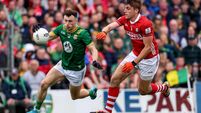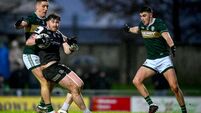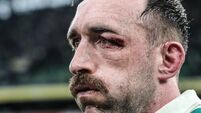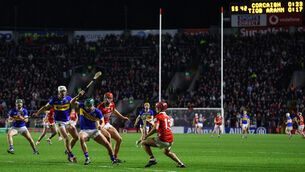Disappointment? Yes, but this was a defeat with difference

Irish teams have never had a problem getting up for games at Twickenham but after the narrow failures that left the back-to-back Six Nations champions winless after the opening two games, this contest represented the last chance saloon. Our championship aspirations may have ended with that one-point defeat in Paris and, on the face of it, an eleven-point defeat to England leaves us propping up the table with perennial Wooden Spoon contenders Italy. Yet in the immediate aftermath of this defeat, it was difficult to feel anything but a strong sense of pride in a group of players that battled the odds and gave everything to the cause.
That England were the better team on the day was never in doubt, but as we know in sport, the better side doesn’t always prevail in the battle of wills that dictates who emerges on top in contests as tight as this proved to be.









